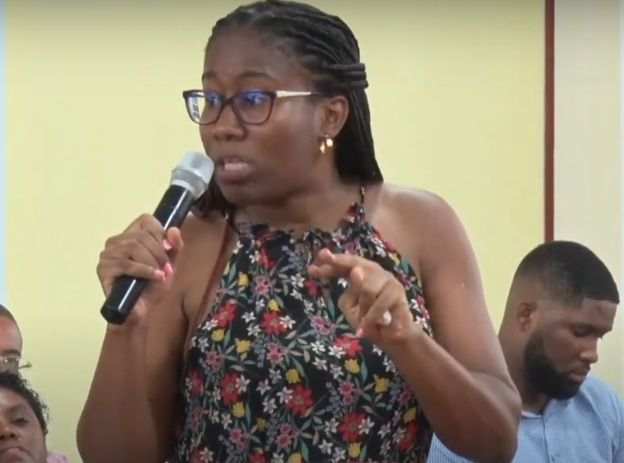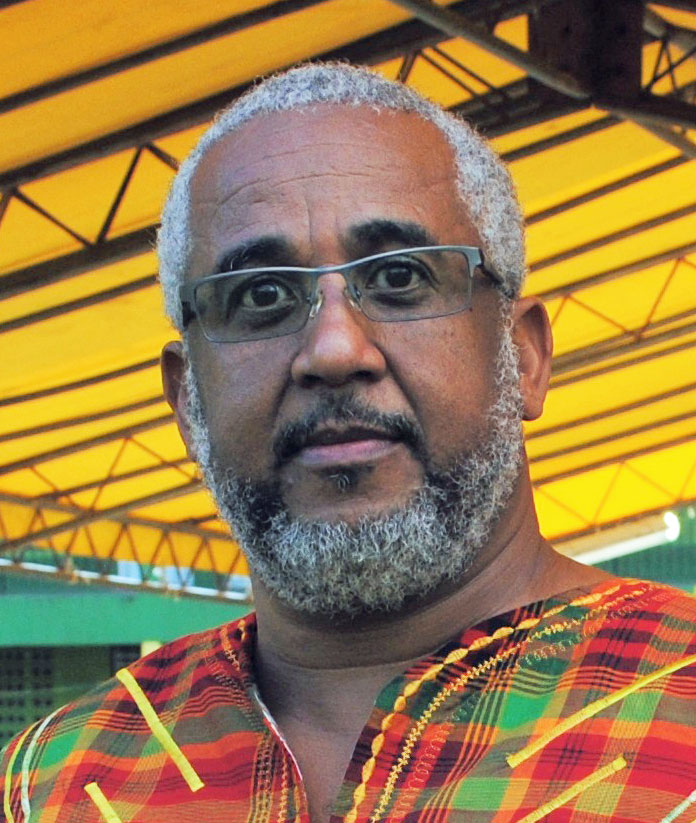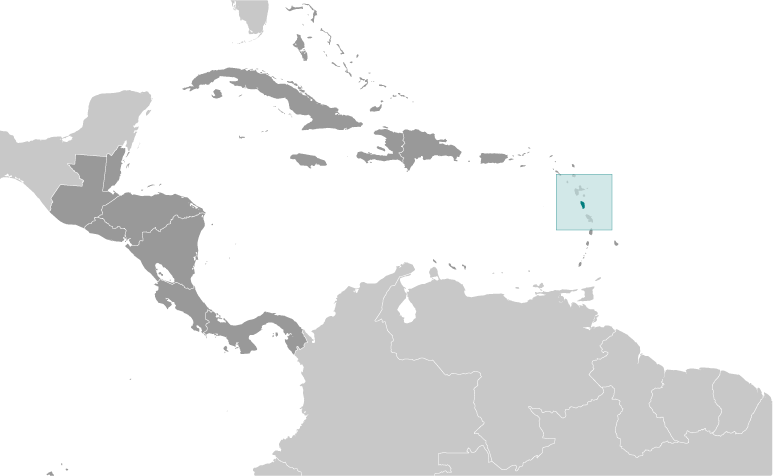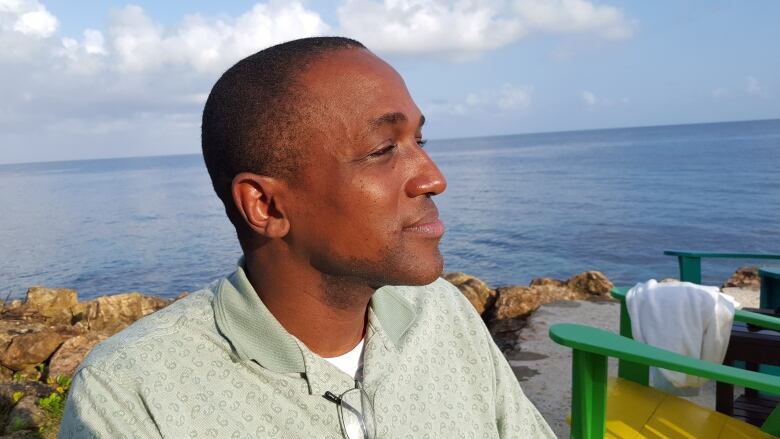Dominica court overturns anti-sodomy law
Colin Stewart is a 45-year journalism veteran living in Southern…
‘A significant milestone in the journey towards equality, dignity, and freedom’

The High Court of the Caribbean island nation of Dominica has ruled that Dominica’s law against consensual same-sex intimacy is unconstitutional.
The judgement against the anti-sodomy law was announced via Zoom this morning.
With this decision, the number of nations with anti-LGBTQ laws has dropped to 65.
Cara Shillingford represented the claimants. The Attorney General’s Office represented the defendant. Unsuccessful parties to the case included the local Catholic and Anglican churches and the Dominica Association of Evangelical Churches, all seeking to maintain the nation’s anti-sodomy law.
The LGBTQ rights group Minority Rights Dominica (MiRiDom) celebrated the news with this public statement:

Ladies and gentlemen, fellow Dominicans,
Today, we gather to mark a significant milestone in the journey towards equality, dignity, and freedom in our beloved nation of Dominica. After years of relentless advocacy, dialogue, and legal battles, MiRiDom celebrates a monumental victory for the LGBTQ+ community and for all who cherish human rights.
This morning Justice Kimberly Cenac-Phulgence of the Eastern Caribbean Supreme Court found sections of the Sexual Offences Act of Dominica to be unconstitutional.
MiRiDom first filed a case to the Dominica high court on the 19th of July 2019, challenging the constitutionality of sections 14 and 16 of the Sexual Offences Act. These laws, which criminalized same-sex activity, represented a blatant violation of citizens’ rights to love who they love.
The court’s judgment today, following a hearing on the 27th of September 2022, has unequivocally sided with justice. We have emerged successful.
The government of Dominica, in its submission, acknowledged that these laws contravened sections 1 and 10 of the Dominican Constitution and recommended they be made void.
This legal acknowledgment is a testament to over 14 years of MiRiDom’s advocacy, ensuring that members of the LGBTQ+ community are no longer marginalized or criminalized for their sexual preferences. Our path to this welcome judgement has been paved with consultations, negotiations, and discussions with the public, government officials, religious leaders, regional and international bodies, including the United Nations and foreign embassies. It is through these efforts, supported by countless individuals, that we have achieved this ground-breaking result.
However, let us not view this victory as the culmination of our efforts. Rather, it is a significant milestone on the continuing path towards full equality and acceptance. The court has fulfilled its role, dismantling the legal framework that underpinned hate and discrimination. The era where bullying and taunting could be justified under the guise of the law is over.
We hope that tragedies, such as the murders of members of our community will never happen again. We remember Clement “Johnson” James, who was stabbed and killed on the Indian River bridge. The murderer’s reason for committing the crime was that he looked at him in a suggestive way. We remember Nurse Pajo, who was killed at his home while his assailant was convicted and on appeal released on an argument of “unnatural sexual advances”.
We remember the Dominican males who, because of their same-sex preferences, committed suicide because they could not handle the stresses of living in this society.

Now, no one can claim that same-sex gender intimacy is against the law, rendering moot the argument that “because the Bible says so.” If one’s religious belief is predicated on hate and disparagement, then it’s time to seek a more compassionate path.
The maxim “do unto others as you would have them do unto you” has never been more pertinent.
This distinction between civil and religious law is fundamental. Civil law is designed to uphold human rights, ensure equality, and protect individuals and their possessions without bias. It does not confer privileges to some while denying others. In contrast, religious law pertains to spiritual guidance and is the domain of religious institutions to interpret and enforce among their congregations.
To the LGBTQ+ community of Dominica, this victory is both a celebration and a call to action. It is imperative that we conduct ourselves with responsibility and grace, recognizing that the path towards true acceptance is long and winding.
The culture of homophobia that has pervaded our society will not vanish overnight. The repeal of these laws does not instantly dissolve the deep-seated prejudices within our society.
The responsibility also lies with the broader community of Dominica. It is incumbent upon all of us to extend support and respect to one another, fostering an environment where every individual can lead a fulfilling life free from fear and discrimination. The LGBTQ+ community, in turn, must embrace their identity with pride, rejecting any notions of inferiority.
It is crucial to remember that this legal victory does not condone or excuse illegal behaviors such as pedophilia, rape or gross indecent exposure, which remain punishable under the law. Our commitment to upholding dignity and consent remains unwavering.
As we close this chapter, we extend our deepest gratitude to those who made this victory possible:
- The Claimant to this case who offered himself to be interviewed and was chosen as being the most qualified candidate to bring this case forward.
- Robert Carr, assisted by Ian McKnight of Jamaica Aids Society (JAS), who in the early 2000s extended their programing to include developing the capacity of the LGBTQ+ community in the Eastern Caribbean and encouraged the formation of the group Caribbean HIV/AIDS Partnership (CHAP), from which most of the LGBTQ+ organizations in the Eastern Caribbean were morphed. The JAS extension program developed to become The Caribbean Vulnerable Communities (CVC).
- The Faculty of Law UWI Rights Advocacy Project (U-RAP) who gave a legal perspective of the anti sodomy laws in the English-Speaking Caribbean.

Maurice Tomlinson (Marnie Luke photo courtesy of CBC) - Maurice Tomlinson, who lent the necessary support for this case to be mounted and finding a sponsor for the legal support and fees from the HIV Legal Network of Canada, without their support we would not have been able to bring this case to the court.
- To our lawyer, Cara Shillingford, in whom we put out trust to run the case through the court system in Dominica.
- The LGBTQ+ community who supported this initiative, without whom this would have been meaningless.
Finally, this win belongs to every Dominican who believes in justice and equality. As we move forward, let us commit to building a Dominica where every person, irrespective of their sexual orientation or gender identity, can live openly and proudly. Thank you.






Excellent result. As Dr. Martin Luther King Jr. once said, “The arc of the moral universe is long, but it bends toward justice.” As a result of this High Court ruling, there is more justice in both Dominica and the world today.